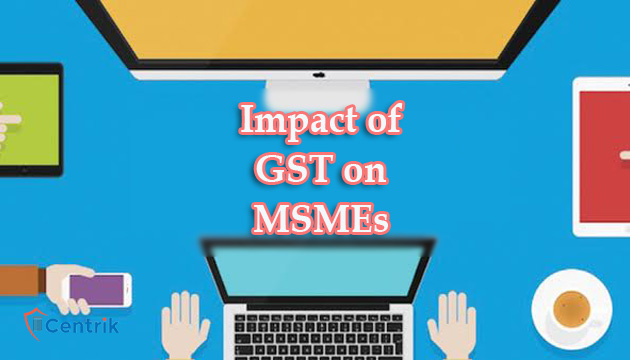
GST or Goods and Services Tax is an indirect taxation in India which is supposed to merge most of the existing taxes into a single system of taxation. The targeted date for implementation is 1st July 2017.
GST will be under dual taxation format, CGST (Central Goods and Services Tax) and SGST (State Goods and Services Tax).
The question is “How will it impact the MSMEs of India?”.
Four major impacts of GST on MSMEs are:
- It will be easier to start a business:
Generally, MSMEs have their presence in multiple states. This makes it difficult for them in terms of taxes. Every state has its own policy for taxes (VAT) and needs separate VAT registration, which adds complications and hence, businesses end up incurring a high procedural fee. GST allows a centralized registration which is valid across all the states in India
- Less Tax Burden on New Businesses:
As per the current tax structure, businesses with a turnover of more than INR 5 lakhs are obliged to pay a VAT registration fee. The government has increased the exemption limit under GST to INR 25 lakhs. This step will give relief to over 60% of small dealers and traders.
- Logistics will be improved with better delivery of services:
With the implementation of GST bill, there would be no entry tax charged for goods manufactured or sold in any part of India. Due to this, the delivery of goods at interstate points and toll check posts will be faster and more efficient. According to CRISIL, logistics cost for manufacturers of bulk goods will be reduced by about 20%. This is expected to boost e-commerce across the nation
- No distinction between Goods and Services:
GST ensures that there is no confusion between goods and services. This will remove various complications in legal proceedings related to the packaged products. Hence, there will no longer be a distinction between the material and the service component, which will reduce tax evasion.
GST will bring unified tax laws and I sincerely hope that it will impact the MSMEs positively.




 join For Updates
join For Updates